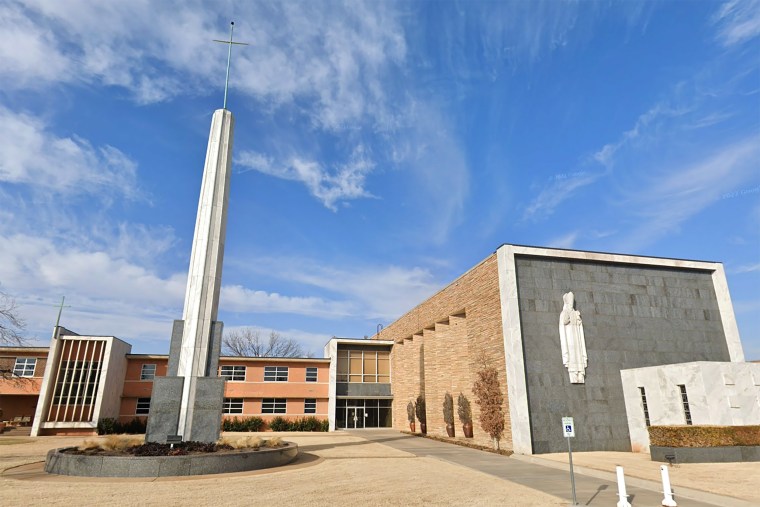Under Oklahoma law, religious institutions and private sectarian schools are not supposed to participate in the state’s charter school programs. As 2022 came to a close, however, Oklahoma’s outgoing Republican attorney general, John O’Connor, and state Solicitor General Zach West said the law should not be enforced.
It’s against this backdrop that the Associated Press reported this week:
A state school board in Oklahoma voted Monday to approve what would be the first publicly funded religious school in the nation. ... The Statewide Virtual Charter School Board voted 3-2 to approve the application by the Catholic Archdiocese of Oklahoma to establish the St. Isidore of Seville Virtual Charter School.
In the interest of clarity, it’s worth noting that Roman Catholic groups have, for many years, received public funds to provide secular social services. It’s not unusual, for example, for a city to contract with a local Catholic Church to host soup kitchens, for example.
This is something altogether different. The Archdiocese of Oklahoma said in the “vision and purpose of the organization” section of its charter school application that the Catholic school “participates in the evangelizing mission of the Church and is the privileged environment in which Christian education is carried out.”
The state’s current Republican attorney general, Gentner Drummond, warned that using public funds to finance religious education would be “contrary to Oklahoma law and not in the best interest of taxpayers.” The Statewide Virtual Charter School Board approved the application anyway.
The news comes two weeks after the Associated Press published a related report about Oklahomans’ neighbors in Texas.
Texas would allow public schools to use campus safety money to hire chaplains to counsel students under a bill approved this week by state lawmakers and sent to Republican Gov. Greg Abbott. The measure approved on [May 24], the one-year anniversary of the school shooting in Uvalde that killed 19 students and two teachers, comes amid a push by the Republican-majority Legislature to open the door for more religion in public schools.
The idea that taxpayer-financed public schools would hire chaplains seems plainly at odds with the First Amendment, but the Lone Star State’s GOP-led legislature approved the measure anyway.
It comes against a backdrop in which Donald Trump, among other Republican presidential candidates, is vowing to “bring back God to our schools and our public squares” just as soon as the 2024 elections wrap up.
At the same recent gathering, Republican Sen. Tim Scott, was asked what the next president should do to protect religious liberty. “We must tell the story of our Constitution that the First Amendment was written to protect the church from the state, not the state from the church,” the South Carolinian said, peddling ahistorical nonsense.
If it seems as if GOP officials and candidates are increasingly indifferent to the separation of church and state, it’s not your imagination. But just as important is understanding why.
To be sure, these Republican positions, in a general sense, are not new — the party has pandered to social conservatives and the religious right movement for years — but publicly funded religious charter schools and public school chaplains are new.
What’s changed? Right Wing Watch published an interesting report this week, quoting Kelly Shackelford, who leads a group First Liberty, which has argued several of the Supreme Court cases.
“It’s now about the people taking back their country,” Shackelford said. “We’ve already won. It’s just [that] every person needs to go in their own community and say, ‘Why don’t we have prayer at the school board meeting? Why don’t we have a Nativity scene?’” ... “We’re always complaining about being on defense,” he continued. “We finally can be on offense. We’ve already won. It’s just a matter of if we’re willing to take the ground or not. This is us going on offense and they can’t stop us.”
Shackelford was referring to the idea that Republican-appointed Supreme Court justices have already given religious right activists the green light to push the envelope — because, to a very real extent, that’s precisely what’s happened.
Justice Neil Gorsuch, for example, has used rhetoric about church-state separation that echoed televangelists’ phrasing, and he and his conservative colleagues have issued multiple rulings in recent years that have turned back the clock on religious liberty.
In other words, a growing number of GOP officials are prepared to disregard the separation of church and state because they believe the right’s 6-3 majority on the high court will let them get away with it.
This post revises our related earlier coverage.

